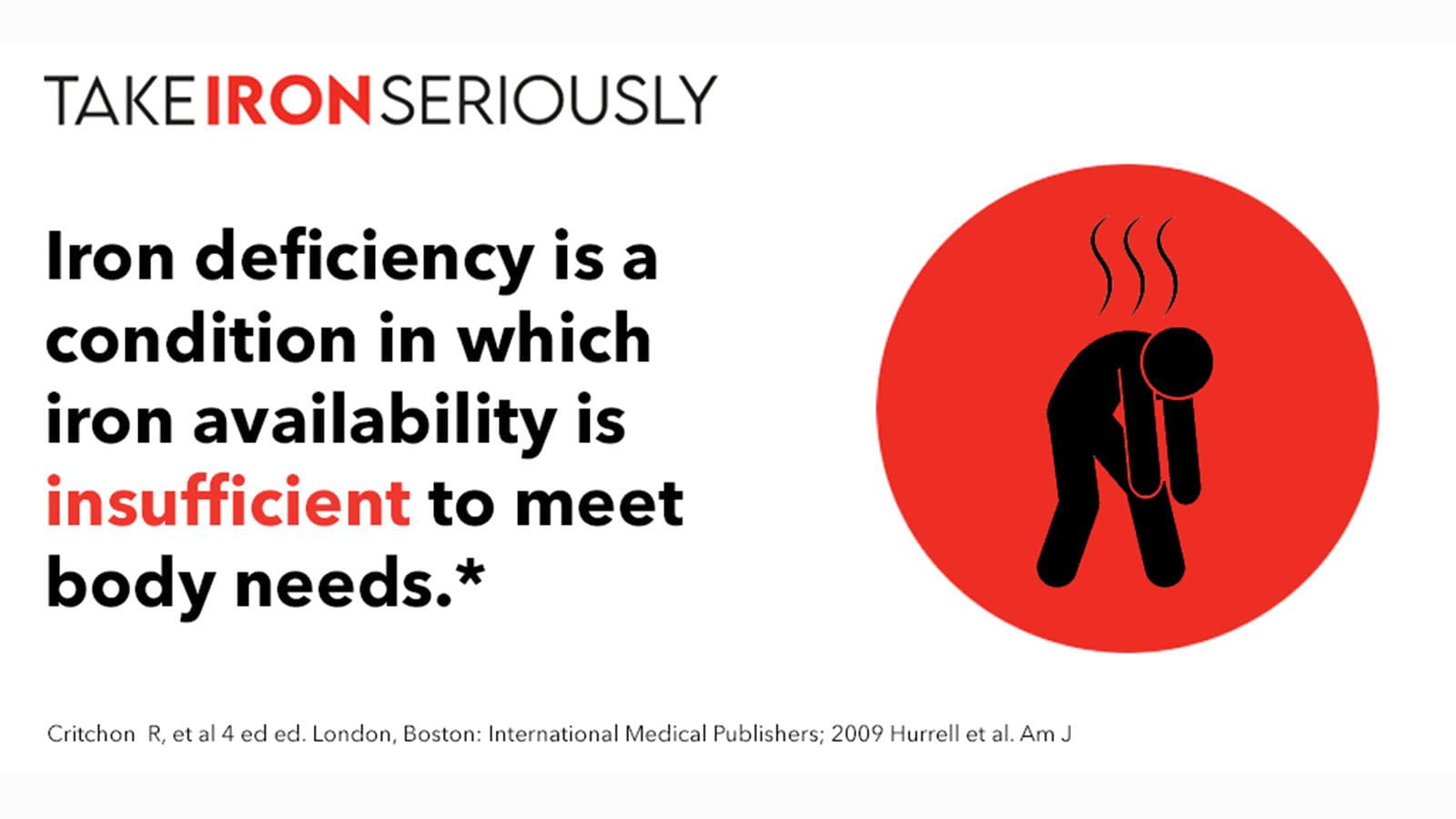Many Australians have heard of iron deficiency, but a significant majority are unaware of the symptoms they should be looking out for, according to a recent survey of 1,033 Australian citizens.
Iron is needed to carry oxygen in your blood, giving you energy and helping you concentrate. It also keeps your immune system healthy, allowing you to fight off infections. Common symptoms include food cravings, shortness of breath, dizziness and decrease in libido.
The survey, commissioned by CSL, asked Australian adults about their understanding of iron deficiency. The results, released last month to promote awareness on Iron Deficiency Day, showed that:
• A quarter (24%) of respondents have never heard of or have a limited understanding of the condition.
• Only 1% of people were aware of all the common iron deficiency symptoms identified in the survey.
Those most at risk of iron deficiency include women, children, adolescents and people living with chronic diseases. CSL Vifor is a leader in treating iron deficiency, which can lead to iron deficiency anemia. When someone has anemia, the body can no longer make the number of healthy red blood cells it needs.
The survey also showed that three in four Australians (77%) believed iron deficiency can either significantly or moderately impact quality of life.
Dr Lisa Clarke, a Hematologist and Iron Deficiency expert, encouraged Australians to take iron deficiency seriously and listen to their bodies.
“Often iron deficiency is only addressed when anemia has developed. By recognizing the signs early and speaking to your GP, we can take an important step towards early diagnosis and treatment,” Clarke said.
Women are at higher risk because of menstruation and pregnancy, she said, and need over twice as much iron from their diet as men to avoid becoming iron deficient.
Learn more about iron deficiency:
If in Australia, visit TakeIronSeriously.com/au.
If in Europe, visit TakeIronSeriously.com.
If in the United States, visit the International Foundation for Patient Blood Management.



